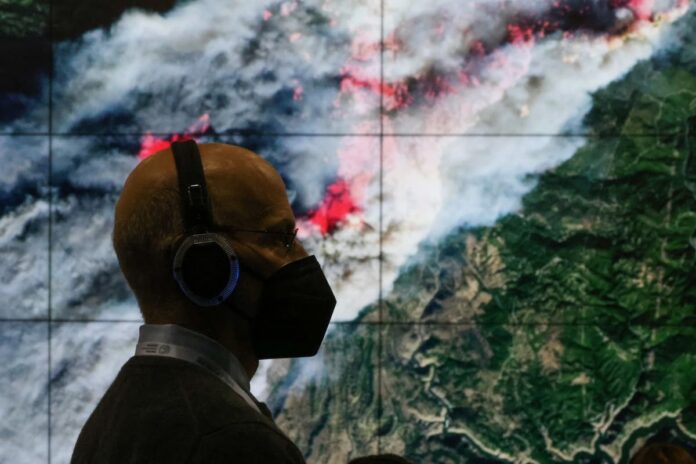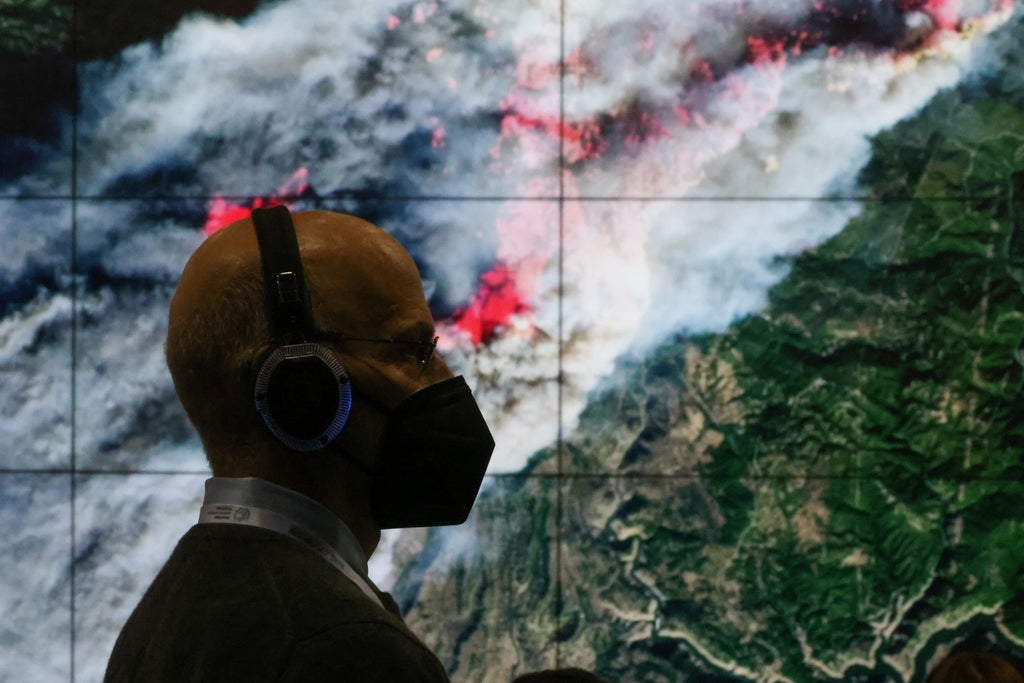[ad_1]
Greater action this decade must be at the heart of the final agreement from the Cop26 climate summit, the UK has said.
Speaking at the start of the second week of the Glasgow summit, UK minister and Cop president Alok Sharma called for a “sense of urgency” as countries begin work hammering out the details of the final deal expected at the end of Cop26.
“We want to forge [an] agreement that means we see more action this decade to help keep the limit of 1.5C global temperature rise in reach,” Mr Sharma told reporters at a press conference held at the summit on Monday.
“My priority now is pace. There needs to be a sense of urgency in all our negotiations. The science is clear, we have no time to lose.”
The summit’s first week saw striking – but often nuanced – deals reached on key issues such as deforestation, coal-fired power and methane.
The second week sees ministers arrive in Glasgow to help guide complex negotiations between nearly 200 countries.
By the end of play on Friday, countries are due to reach a consensus on a range of issues, ranging from how much money rich nations should pledge to help poorer ones adapt to escalating climate impacts to how the rules of the Paris Agreement should be implemented.
There are also calls for countries to submit new domestic climate plans, known as “nationally determined contributions”, more often to help the world get on track for the Paris Agreement’s aspiration of limiting temperatures of 1.5C.
Currently, countries are asked to submit new climate plans every five years.
But some, including former UN climate chief Christina Figueres, have called for countries to instead set new plans every year to help close the gap between current promises and what is needed to have a hope of meeting the temperature target.
On Sunday, the UK’s Cop26 team released a draft text of the possible elements that will be included in the final agreement from Glasgow.
The document suggests that the final texts will recognise the “urgency of action to keep 1.5C” and that the world is in a “critical decade to deliver Paris goals on mitigation, adaptation and finance”.
However, some environmental groups criticised the outline for failing to mention the need to transition away from using fossil fuels.
Greenpeace described the document as “exceptionally weak”.
“What’s very concerning here in Glasgow is that the first draft of the climate pact text is already exceptionally weak. Usually the text starts with some ambition, which then gets watered down,” said Jennifer Morgan, executive director of Greenpeace International.
“To keep 1.5C alive, four words must be added: ‘fossil fuels phase out’, and countries must come back next year to close the gap.”
The criticism comes as new analysis from the charity Global Witness found that there are more than 500 delegates at Cop26 that are associated with the fossil fuel industry – more than has been sent from any single country.
The findings raised fears that the fossil fuel industry could be lobbying to delay climate action at the conference.
Responding to the analysis on Monday, current UN climate chief Patricia Espinosa said that Cop26 was “an inclusive process”, but added that fossil fuel companies “need to change”.
“It is not something that will be able to go on forever,” she told reporters.
“Some of our parties are oil-producing countries, some of them even have state-owned oil companies. We need all of that industry to change.”
[ad_2]
Source link














